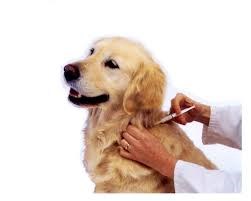Residents are advised of an increase in reported rabies cases in 2016.
While the threat of rabies in Saskatchewan is still low, there has been an increase in reported rabies cases in 2016.
It is critical to keep pets up-to-date with their rabies vaccinations. All dogs, cats and ferrets should be vaccinated regularly, as well as livestock that are in regular contact with people (for example those in petting zoos, pet therapy animals, childrens’ summer camps, and 4-H animals).
Individuals need to take precautions when dealing with animals exhibiting symptoms consistent with rabies, such as neurological problems or abnormal behavior. This may include avoiding direct contact with animals and ensuring pets’ vaccinations are up to date. All suspected cases of animal rabies should be reported to the provincial rabies hotline at 1-844-7-RABIES.
Provincial rabies programming is in place to protect the health and safety of the Saskatchewan human and domestic animal populations.
The number of animals found to have rabies in Saskatchewan has varied over the last five years, from a high of 34 cases in 2011 to a low of 13 cases in 2013.
In 2015, 151 animals with rabies were found. The number of rabid animals increased in 2015 as compared to previous years due to a reoccurrence of rabies in Ontario and Nova Scotia.
As of July 13, 2016, there have been 18 confirmed cases of rabies in animals.
Exposures to the four domestic animals with rabies have resulted in 25 people receiving post-exposure rabies treatment. These events highlight the risks of rabies to both humans and domestic animals. There has not been a human case of rabies in Saskatchewan for more than 40 years.
There is an allocated $400,000 cost-shared program between the Ministries of Agriculture and Health to deliver the Rabies Response Program.
The Rabies Response Program consists of veterinary-delivered activities led by a contracted Rabies Risk Assessment Veterinarian. Activities include the collection and submission of samples by veterinarians for rabies testing, response to positive cases and the operation of a 1-844-7-RABIES reporting line.



